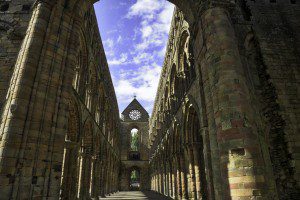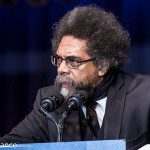 Our common spiritual heritage represents our shared sacred story; it is all of ours to remember and reclaim as our own. The “priceless heritage” referred to by Baha’u’llah is the uninterrupted, continuous story of the Creator’s hand in every era of our history, which has been told and retold in each era by the founders of every great religion and has been lived out by the followers of all the great spiritual traditions. It is the unfolding story of our oneness; we all have our role in this story.
Our common spiritual heritage represents our shared sacred story; it is all of ours to remember and reclaim as our own. The “priceless heritage” referred to by Baha’u’llah is the uninterrupted, continuous story of the Creator’s hand in every era of our history, which has been told and retold in each era by the founders of every great religion and has been lived out by the followers of all the great spiritual traditions. It is the unfolding story of our oneness; we all have our role in this story.
In their essence, the scriptures of all religions have given the same message. The Golden Rule and other spiritual values (such as love thy neighbor, honor thy father and mother, or it is more blessed to give than to receive) are all stated in one form or another by every religion. These universal values are all part of our common sacred heritage that each of us is an heir to.
The essential beliefs shared by all religions speak to our differences as being superficial and our similarities deep. We are all one in spirit, and this is where it matters most. This is what will most enable us to realize our unity while acknowledging and honoring our diversity.
There is a rich and deep well of wisdom constituting the core of our common heritage. Becoming an inheritor of our common spiritual heritage is both an action we can each take and a solution needed to resolve global conflicts, suffering, and anarchy.
This solution could also be seen as an underlying reason that 144 nations adopted the United Nations “Declaration on the Rights of Indigenous Peoples” in September 2007, affirming “that all peoples contribute to the diversity and richness of civilizations and cultures, which constitute the common heritage of humankind.” This triumph for justice and human dignity addressed both individual and collective rights.
Documents such as this help eliminate any separation from our spiritual source and return us to the essence of what every great religion has taught, just as the words of the Prophets get us in touch with our true spiritual nature and reconnect us with our Creator.
Rumi has a slightly different way of expressing this phenomenon:
“The kings of this world do not speak to every weaver. They appoint ministers and representatives so that through them people may find the way to them. In the same way God has singled out certain servants so that everyone who seeks Him may find Him within them. All prophets have come for this reason.”
Collectively, the prophet-founders of the world’s religions have left their sacred teachings and scriptures for all to benefit from. Baha’u’llah, most recently, has bequeathed to humanity the essence of all of these teachings in his volumes of scripture, which illumine life’s deepest questions. For example, “The fundamental purpose animating the Faith of God and His Religion is to safeguard the interests and promote the unity of the human race, and to foster the spirit of love and fellowship.”
This is the heart of the overflowing “priceless heritage” we all have access to, are the recipients of, and can reclaim as our own. Our individual story can reflect this collective story, this common spiritual heritage, as well, if we choose.
Our common spiritual heritage is primarily a system of values, beliefs, and principles for living life here that will better serve us for the life beyond this one, or throughout eternity, focusing on the one identity we all share, human beings with a spiritual essence. This represents the deepest and widest of all our identities, and we are not often fully aware of how completely inclusive it is, and how much of a sense of wholeness and unity it provides us with. An important question we are left with is: Does our global age require a personal identity that must be broadened to a more universal and inclusive level?













